




The Story new STEP ON IT FIRST One Planet, One Goal Il piacere di apprendere Gruppo Editoriale ELi by Sarah Orne Jewett George Orwell Virginia Woolf Edgar Allan Poe Janet Harmer FIRST new STEP ON IT Il piacere di apprendere Gruppo Editoriale ELi Wordbank Grammar Zone B2 FIRST/B2 INVALSI Exam Skills FIRST Conors’ BLOG The Story © Casa Editrice G. Principato
Step 1 Irish Wildlife 4 READING AND USE OF ENGLISH – PART 1 WILD AND WONDERFUL 5 • Collocations • Word formation • Idioms 1 LISTENING – PART 1 7 2 SPEAKING – PART 1 Step 2 Say nothing 12 READING AND USE OF ENGLISH – PART 1 FOOD FOR THE BRAIN 13 • Collocations • Word formation • Idioms 3 READING AND USE 15 OF ENGLISH – PART 5 LISTENING – PART 3 4 WRITING – PART 2 Step 3 All you need to know 20 about hurling READING AND USE OF ENGLISH – PART 2 MY FAVOURITE SPORT 21 • Collocations • Phrasal verbs 5 READING AND USE 23 OF ENGLISH – PART 7 WRITING – PART 1 Step 4 The honest project 28 READING AND USE OF ENGLISH – PART 6 A PIECE OF CAKE! 29 • Words easily confused • Collocations • Phrasal verbs LISTENING – PART 2 31 6 SPEAKING – PART 2 WRITING – PART 2 Step 5 Walls have stories 36 READING AND USE OF ENGLISH – PART 2 A WORK OF ART 37 • Word formation READING AND USE OF ENGLISH – PART 3 READING AND USE 39 OF ENGLISH – PART 6 LISTENING – PART 4 7 Step 6 Red, Set, Go! 44 READING AND USE OF ENGLISH – PART 1 TIME TO PARTY! 45 • Word formation • Idioms WRITING – PART 2 47 LISTENING – PART 2 8 Step 7 Malala’s unstoppable 52 journey READING AND USE OF ENGLISH – PART 6 STAY HUNGRY, 53 STAY FOOLISH 9 • Word formation READING AND USE OF ENGLISH – PART 3 READING AND USE 54 OF ENGLISH – PART 7 WRITING – PART 2 SPEAKING –PARTS 3 AND 4 PAPER 1 – READING AND USE OF ENGLISH 60 PAPER 2 – WRITING 66 PAPER 3 – LISTENING 10 11 12 13 68 PAPER 4 – SPEAKING 70 CAMBRIDGE ENGLISH: B2 FIRST BLOG 2 © Casa Editrice G. Principato
Wordbank Exam Skills FIRST
• Past Perfect Simple
• Past Perfect Continuous
• Past habits: used to / would
• Future Continuous
• Future Perfect Simple
• Future Perfect Continuous
READING AND USE OF ENGLISH – PART 4
• Modal verbs 25
Obligation and advice
Deduction: certainty and possibility
Necessity and lack of necessity
• Adjective + preposition
• Verb + preposition
READING AND USE OF ENGLISH – PART 4
• Causative verbs: make, let, get, have
• The passive with verbs of saying and thinking
• Negative adverbials
• Like, as and as if / as though
• Even though / Even if
• Whether or if
• Word formation Prefixes Suffixes
• Wish and if only
• Would (’d) rather
• Would prefer
• It’s (high) time
READING AND USE OF ENGLISH – PART 4
THE STORY
Grammar ZONE
9
17
33
41
48
56
READING 73 LISTENING 14 15 16 77 B2 INVALSI A Descent into the Maelstrom by Edgar Allan Poe 4 1 2 A White Heron by Sarah Orne Jewett 9 3 4 5 The Widow and the Parrot by Virginia Woolf 15 6 7 Shooting an Elephant by George Orwell 20 8 The Agenda 2030 24 3 © Casa Editrice G. Principato
Irish WILDLIFE
Hi everybody and welcome to my blog! I’m Conor, I’m 17 and I live in Limerick in the southwest of Ireland.
Let me introduce myself – I’ve got loads of interests and hobbies – I’m really into sport, especially hurling (more about that later!), art, music, reading and writing about other Irish bloggers… which I’ve been doing since the tender age of 15! I hope you’ll enjoy reading about my beautiful country!


I’m also a bit of an animal lover and today I’d like to tell you about a few animals you might (1) ________________ if you ever visit our Emerald Isle1!!
First of all, the much-loved beautiful Irish setter. They’re known for their beautiful russet-red2 coat but you might not know that around 400 years ago, they used to be red and white, two colours that made it easier for hunters to (2) ________________ them in their fields. It was only in the late nineteenth century that the breed3 as we know it today became popular.

Next up is the magnificent red deer – (3) ________________ to have been present in Ireland for at least 12,000 years. This gorgeous animal is Ireland’s largest land mammal, and is the only (4) ________________ species of deer considered “native”. (5) ________________, it was very nearly hunted to extinction – in fact the majority of red deer have been reintroduced from Scotland. Red deer are forest animals. However, (6) ________________ deforestation they have had to adapt to the wild open mountainous terrain of Ireland. Finally, Connemara ponies: these majestic creatures, native to Ireland but with Scandinavian and Spanish origins, are (7) ________________ for their gentle nature and the strong bonds4 they are able to form with their owners. They are hardy5 animals, probably due to the fact that they have adapted and survived the harsh climate and rocky terrain. Although Connemara ponies are native to Ireland they are now bred (8) ________________ including the UK, USA, Europe, New Zealand, Australia and Africa.
Well, that’s all for the moment
See you soon!
Conor
1 Emerald Isle_Isola di Smeraldo (a poetic name for Ireland) 2 russet-red_color ruggine 3 breed_razza, specie
4 bonds_legami, vincoli 5 hardy_forti, robusti
READING AND USE OF ENGLISH – PART 1 (MULTIPLE-CHOICE CLOZE)
1 Read the text and decide which answer (A, B, C or D) best fits each gap.


1 A come up with B come across C come into D come over
2 A spot B distinguish C notice
note
3 A considered B regarded C believed D supposed
4 A current B popular C existing
5 A Unluckily B Unhappily C Fortunately D Sadly
6 A in view of B due to C owing D since
7 A familiar B celebrated C known D recognized
8 A worldwide B widespread C worldly D abroad
1 STEP 4 BLOG
D
D present
BLOG
© Casa Editrice G. Principato

WILD AND WONDERFUL Collocations
Look at the photos and decide which of the words below are used with each animal. Some can be used more than once.






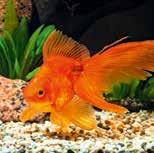

Wordbank 5 Wordbank
beak • stripes • feathers • paws • claws • wing • fin • spots • scales • trunk • fur • fangs • tusks • mane • whiskers
5 1 7 3 6 2 8 4 ANIMAL WORDS 1 elephant tail, … 2 3 4 5 6 7 8 Step 1 © Casa Editrice G. Principato
Word formation
2 Add suffixes or prefixes to make new words. You may need to make some spelling changes.
(1) __________________ conserve
protection (2) __________________ (3) (4) (5) __________________ X aggressive (6) (7) __________________ (8) __________________ surviving X zoology X (9) ______________ (10) poison (11) (12) X (13) _________________ (14) strong (15)
3 Complete the sentences with a word from exercise 2.
1 Planting trees is a form of ____________________.
2 There are hundreds of _____________________ spiders and snakes in the world.
3 Crows are very _____________________ of their nests. They can be _____________________ and will attack anything that gets too close to the nest.
4 An animal’s sense of smell is crucial to its _____________________.
Idioms
5 The __________________ park is home to a diverse range of exotic animals from around the world.
6 The elephant’s immense _____________________ enables it to uproot trees and carry them with ease in the wild.
7 The protection of _____________________ species is crucial for maintaining biodiversity and preserving ecosystems.
4 1 Complete the sentences with a word from the box. Then listen and check. cat • rat • chickens • butterflies • sheep • snail • birds • bull
1 While studying in the park, I decided to kill two ________________ with one stone by getting some fresh air and reviewing my notes at the same time.
2 Realizing he couldn’t avoid the difficult conversation any longer, Mark decided to take the ________________ by the horns and address the issue with his coworker directly.
3 In a family of athletes, Sarah was the black ________________, pursuing a career in music instead of sports.
4 As I stood on stage waiting to sing, I couldn’t help but feel ________________ in my stomach.
5 When he asked for a £500 deposit in cash I smelled a ________________.
6 Due to the heavy traffic, our journey to the beach moved at a ________________’s pace, and it took us absolutely ages to get there.
7 I was trying to keep the party a secret but Mel went and let the ________________ out of the bag and told everybody!
8 After the fire alarm went off in the office, everyone was running around like headless ________________, not knowing what to do.
6 Wordbank Wordbank
NOUN VERB ADJECTIVE ADVERB
endanger dangerous/endangered dangerously
danger
X X
© Casa Editrice G. Principato
LISTENING – PART 1 (MULTIPLE CHOICE)
1 2 You will hear people talking in 8 different situations. For questions 1-8, choose the best answer (A, B, or C).
1 You hear two people talking about an exam. How does the girl feel?
A anxious
B annoyed
C nervous
2 You hear two teenagers talking about a computer game. How do they think it could be improved?
A by making it more difficult
B by giving the players more information
C by making it more competitive
3 You hear a boy talking to a friend of his on the phone. Where does he want his friend to meet him?
A at a café near the stadium
B at the train station
C inside the sports stadium
4 You will hear a boy and a girl talking about a restaurant. What did they both like about it?
A the service
B the large portions
C the cheap food
5 You hear a boy and a girl talking about taking up golf. What do they agree about?
A it’s too difficult
B it’s too expensive
C it’s great fun
6 You hear two men talking. Where are they?
A at an airport
B at a railway station
C at a bus stop


7 You overhear a young woman talking about a job she had. Why did she leave?
A She wanted to travel
B She didn’t enjoy the work
C Her boss sacked her
8 You hear a man complaining about his holiday. What is he unhappy with?
A the staff
B the accommodation
C the facilities
Exam Skills FIRST 7
FIRST
Exam Skills
Step 1 © Casa Editrice G. Principato
SPEAKING – PART 1 (INTERVIEW)
• In Part 1 of the examination you – talk to an interlocutor; – answer questions about yourself and your life.
TIPS
Remember to:
• answer the questions with complete sentences, do not simply say “yes” or “no”;
• show interest and enthusiasm;
• ask the examiner to repeat the question if you have not understood
2 Complete the sentences with the words from the box.
two • marks sheet • assessor • examiners • interlocutor • partner • name • examination
Before you take the speaking exam you and your (1) _______________ will wait outside the (2) _______________ room. You will be given a (3) _______________ with your (4) ______________ on it.
In the room there are two (5) _______________ – one is the (6) _______________, who will ask you the questions and the other is the (7) _______________ who will decide on the marks you get.
The first part of the exam lasts about (8) _______________ minutes.
3 Now practise with a friend.
Ask and answer the following questions.
• Where are you from?
• What do you like/dislike about your home town?
• How do you spend your free time?
• What was the last film you saw?
• What was the last book you read?
• What did you do last summer?
• How will you spend your next school holiday?
• What do you like about your school?
• What do you hope to do in the future?


Exam Skills FIRST 8 Exam Skills FIRST © Casa Editrice G. Principato
PAST PERFECT SIMPLE
AFFIRMATIVE FORM
Subject + had (’d) + past participle
When we got to the cinema the film had already started.
NEGATIVE FORM
Subject + hadn’t + past participle
We hadn’t seen each other for years but she hadn’t changed at all.
INTERROGATIVE FORM INTERROGATIVE-NEGATIVE FORM
Had + subject + past participle
Had you been to England before last year’s study holiday?
We use the past perfect simple:
• to talk about actions which happened before others in the past; it is often used with time expressions such as when, after, before, as soon as, till/until.
As soon as I had finished lunch I started to revise. Dan hadn’t been to England till/until last year.
Hadn’t you seen that TV series before?
• after the expressions it was the first/second time…, it was the best/worst…
Hadn’t + subject + past participle
Hadn’t you already read that book?
It was the second time she had won the tennis tournament.
It was the worst experience I had ever had.
• with for and since to express duration of actions and states in the past. For refers to the length of time and since to the starting point.
They had lived in Manchester for ten years when they decided to move abroad.
Jim had had a temperature since Saturday morning so he stayed at home on Monday.
PAST PERFECT CONTINUOUS
AFFIRMATIVE FORM
Subject + had (’d) been + -ing form
I’d only been playing tennis for 20 minutes when it started to rain.
INTERROGATIVE FORM
Had + subject + been + -ing form
How long had you been teaching when you became Head Teacher?
We use the past perfect continuous:
• to talk about actions which had been in progress up to the past time we are talking about. He had been driving for eight hours when he had the accident.
NEGATIVE FORM
Subject + hadn’t been + -ing form
She hadn’t been living in London for long when she lost her job.
INTERROGATIVE-NEGATIVE FORM
Hadn’t + subject + been + -ing form
Hadn’t he been thinking of buying a new flat?
The ground was covered with snow. It had been snowing heavily for hours.
How long had you been living in Berlin when you met your girlfriend?
Grammar ZONE Grammar Zone 9
Step 1 © Casa Editrice G. Principato
• with for and since We had been travelling around Europe for only a week when I fell ill.
Simon was really tired – he’d been cleaning the house since 7 a.m.
1 Choose the correct answer.
1 The children were out of breath because they had run / had been running all afternoon.
2 Penny had had / had been having a pet lizard for 3 years when her parents told her to take it to the zoo.
3 My dad stopped to help a man whose car had been breaking down / had broken down.
4 My sister had already made / already made lunch by the time I got home.
5 Kaylee got a really bad mark in her English test because she hadn’t understood / hadn’t been understanding what she was supposed to do.
6 The bell had already been ringing / had already rung when they got to school.
7 Ahmed had waited / had been waiting for the train for half an hour when he realised there was a train strike.
8 Yolanda and Joe had been knowing / had known each other for only 6 months when they moved in together
9 When you won that contest, how long had you been doing / had you done MMA?
10 Isabel was so upset when the school trip was called off. She had looked forward / had been looking forward to it for weeks.
REMEMBER!
Some verbs (known as “state verbs”) are normally used only in the simple forms, not the continuous forms.
How long had Mike had his laptop before it broke? NOT
How long had Mike been having his laptop before it broke?
2 Complete the email with the past perfect or past perfect continuous of the verb in brackets.
Hi Abbie
Sorry I left without you last night, but I really wanted to see the concert and I (1) ____________ (tell) you to meet me at 7.30 because I didn’t want to be late. I (2) ____________ (wait) for almost an hour and I (3) ____________ (drink) three cups of tea before I finally decided to leave because I (4) ____________ (arrange) to meet Jim in front of the stadium at 8.30. When I got to the stadium at 9 o’clock, Jim (5) ____________ (already / park) his car and was waiting for me. He wasn’t very pleased because he (6) ____________ (sit) in the coffee shop for over half an hour. He said he (7) ____________ (send) several messages but you never answered. He (8) ____________ (already / collect) the tickets, he (9) ____________ (have) a drink and (10) ____________
(eat) a sandwich. He said that he (11) ____________ (even / think) about going inside without us! Anyway, we had a great time even if the concert (12) ____________ (already / start) when we eventually got in.
Next time (if there is a next time) I suggest you arrive on time!
Georgia
PAST HABITS: USED TO / WOULD
• We use used to + base form: – to talk about past habits which are now finished. Natalie used to be very good at gymnastics when she was a child.
– to talk about past states and situations which are no longer true. The Smiths used to have a Ferrari.
10 Grammar ZONE Grammar ZONE
© Casa Editrice G. Principato
• The negative and interrogative form of used to are didn’t use to… and Did… use to?
I didn’t use to like English but now I love it! Did your parents use to live in Scotland?
• We use would + base form to talk about someone’s typical habits or behaviour in the past. My parents would often take me skiing in the winter in Switzerland.
• When we talk about past habits, we can use either used to or would My mum used to take/would take us to the outdoor swimming pool in summer.
3 Complete the sentences with the correct form of used to and a suitable verb.
1 Steve ___________________ fruit and vegetables when he was younger but now he eats loads!
2 When Tammy was little she ___________________ her mum’s shoes and pretend she was a model.
3 My dad ___________________ cricket for England when he was at university.
4 Irene ___________________ studying English when she was little but now she loves it!
5 Ellie ___________________ a pet mouse when she was at primary school. Now she has a pet rat.
6 ___________________ (you) in Sunnymede Avenue when you were little?
7 There ___________________ a library opposite the cinema but it was knocked down a couple of years ago.
8 I ___________________ a pet parrot that could mimic our doorbell perfectly!
4 Are the underlined parts of these sentences right (R) or wrong (W)? Correct them where necessary.
1 Holly and Anna would be best friends but they drifted apart over the years. R W
2 We used to have a cat but it ran away. R W
3 She would be a really cheerful child when she was young. R W
4 What would your great-grandfather do for a living? R W
5 Cody would live in the countryside in the 90s. R W
• When we talk about past states, we can use used to, but not would. My sister used to be very shy but now she’s very outgoing.
REMEMBER!
We only use used to to talk about the past. When we talk about present habits, we use the present simple. Neil always watches TV in the evening. Carl never gets up early on Sundays.?
6 Carmen has started drinking herb tea. She never used to like it. R W
7 They are used to spending New Year with us every year until they moved abroad. R W
8 Did you used to enjoy studying Latin when you were at school? R W
5 Choose the correct answer.
1 At first the noise of the traffic outside was annoying but I am used to / am getting used to it slowly.
2 After switching to a vegetarian diet it took me a while to get used to / be used to not eating meat.
3 The weather is so hot in the south of Italy but I’m sure I’ll get used to / be used to it.
4 Gemma got used to / was used to having a room to herself and found it difficult to share with another person when she went to university.
5 I had to be used to / get used to the new software before I could work efficiently.
6 Matt was just getting used to working / used to work shifts when he changed jobs.
7 Even if I lived in northern Europe for 20 years I don’t think I would ever be used to / get used to the dark all winter.
8 She’s used to / gets used to the cold weather because she grew up in the north of Scotland.
9 Gosh! I’m really full after that meal. I’m not used to / ’m not getting used to eating that much!
10 I used to love / am used to loving spicy food but now I can’t handle it.
Grammar ZONE 11
Step 1 © Casa Editrice G. Principato
Say NOTHING BLOG
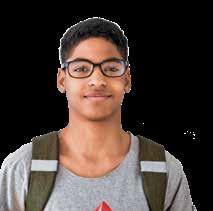
Hi everybody! I love reading, I’m what you’d call a real bookworm! I’ve just finished an amazing book (1) __________________________ in Belfast. It’s called “Say Nothing: A True Story of Murder and Memory in Northern Ireland”. It focuses on the troubles in Northern Ireland in the 1970s and it was written by a young Irish author called Patrick Keefe. It tells the story of Jean McConville, a thirty-eight-year-old widowed mother of ten, who was dragged from her Belfast home by masked intruders, her children clinging to her legs. Oddly, not one of her neighbours stepped into the hallway to see what was going (2) __________________________. Everyone in the neighbourhood knew that the I.R.A. was responsible but nobody said (3) __________________________ –they were too scared to speak. McConville was never seen alive again. Years later, in 2003, a set of human bones was discovered on a beach. McConville’s children knew it was their mother when they were told a blue safety pin was (4) __________________________ to the woman’s dress. With so many kids she had always kept it (5) __________________________ for diapers or for ripped clothes. I don’t want to (6) __________________________ it for you – it’s a gripping story which explores the extremes that people will go (7) __________________________ for an ideal, and the way societies mend (or don’t) after a long and bloody conflict. (8) __________________________ worth reading…
See you soon!
Conor

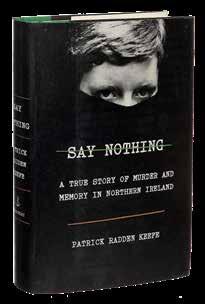
1 For questions 1–8 decide which answer(A, B, C or D) best fits each gap.
1 A set
2 A up
3 A nothing
4 A linked
7 A at
8 A Obviously
located
in
anything
placed
on
based
to
noone
12 BLOG
2 STEP
READING
USE OF ENGLISH – PART 1 (MULTIPLE-CHOICE CLOZE)
AND
B
C
D
B
C
D
B
C
D
something
B
C
D
B
C available D convenient
B
C ruin D upset
connected
joined
attached 5 A handy
near
6 A damage
spoil
B
C for D
on
to
B
C Definitely D
© Casa Editrice G. Principato
Clearly
Surely
FOOD FOR THE BRAIN
Collocations
1 Match the collocation with its definitions.
1 to be absorbed in a book
2 bedtime reading
3 speed reading
4 to skim through a book
5 light reading
6 an unputdownable book
7 a hardback
8 a bestseller
a not read thoroughly
b reading in bed
c reading faster than normal
d to be totally focused on reading
e a book with a hard cover
f something easy to read
g a book that is so exciting that it’s difficult to stop reading it
h a book that sells particularly well at a given time
2 Complete the sentences using one of the collocations in exercise 1.
1 I want some ____________________________ for my holidays – a romance or something similar.
2 She didn’t have much time so she just the report before the meeting.

3 The book was totally I read it in two days!
4 Karen didn’t hear me because she was
5 I wouldn’t recommend horror stories for .
6 Her first book flopped but her second became a .
7 I was a bit annoyed -I’d just bought the when the paperback edition came out.
8 If you want to be a journalist you have to learn .
Word formation
3 Add suffixes or prefixes to make new words. You may need to make some spelling changes.
Wordbank 13 Wordbank
Step 2
NOUN VERB ADJECTIVE ADVERB imagination (1) __________________ (2) __________________ (3) __________________ (4) __________________ amaze (5) (6) (7) __________________ X autobiographical / biographical (8) (9) __________________ (10) _________________ (11) educationally (12) _________________ (13) _________________ exciting (14) (15) _________________ romance (16) (17) (18) _________________ X (19) mysteriously (20) _________________ (21) boring (22) (23) (24) deep (25) history X (26) (27)
© Casa Editrice G. Principato
READING AND USE OF ENGLISH – PART 3 (WORD FORMATION)
3 Complete the sentences with a suitable word from exercise 1.
1 Her writing is ___________________ but lacks precision. IMAGINE
2 To everyone’s ___________________ the book was a hit! AMAZE
3 “Borstal Boy” is the __________________ record of Behan’s experiences in reform school. AUTOBIOGRAPHY
4 Success should not only be measured by ___________________ achievement. EDUCATION
5 He’s considered a brilliant student but rather ___________________. EXCITE
6 For the moment Dan isn’t interested in a ___________________ relationship. ROMANCE
7 He was being very ___________________ – he wouldn’t tell me what he was up to. MYSTERY
8 Listening to music while running can relieve ___________________. BORE
9 Mr Gibbs is clearly out of his ___________________ in this conversation. DEEP
10 ___________________, royal marriages have been cold, calculating affairs. HISTORY
Idioms
4 3 Complete the sentences below choosing the correct words from the box. Then listen and check.
an open book • read me like a book • judge a book by its cover • every trick in the book • read between the lines • take a leaf out your book
1 My best friend knows me so well; she can ________________________, even when I try to hide my feelings.
2 After seeing how organized your workspace is, I decided to ________________________ and reorganize mine.
3 His emotions are like ________________________; you can always tell how he’s feeling just by looking at his face.
4 She used ________________________but she still couldn’t persuade me to buy her products.
5 Don’t ________________________; even though he looks tough on the outside, he’s actually a very kind and caring person.
6 Always ________________________when signing contracts.

14 Wordbank Wordbank
©
Casa Editrice G. Principato
READING AND USE OF ENGLISH – PART 5 (MULTIPLE CHOICE)
1 You are going to read an extract from a book about a young girl Louisa who has moved to the USA ready to start a new life. For questions 1–4, choose the answer (A, B, C or D) which you think fits best according to the text.
It was the moustache that reminded me I was no longer in England: a solid, grey millipede firmly obscuring the man’s upper lip; a Village People moustache, a cowboy moustache, the miniature head of a broom that meant business. You just didn’t get that kind of moustache at home. I couldn’t tear my eyes from it.
‘Ma’am?’
The only person I had ever seen with a moustache like that at home was Mr Naylor, our maths teacher, and he collected Digestive crumbs in his – we used to count them during algebra.
‘Ma’am?’
‘Oh. Sorry.’
The man in the uniform motioned me forward with a flick of his stubby finger. He did not look up from his screen. I waited at the booth, long-haul sweat drying gently into my shirt. He held up his hand, waggling four fat fingers. This, I grasped after several seconds, was a demand for my passport.
‘Name.’
‘It’s there,’ I said.
‘Your name, ma’am.’
‘Louisa Elizabeth Clark.’ I peered over the counter.
‘Though I never use the Elizabeth bit. Because my mum realized after they named me that that would make me Lou Lizzy. And if you say that really fast it sounds like lunacy. Though my dad says that’s kind of fitting. Not that I’m a lunatic. I mean, you wouldn’t want lunatics in your country. Hah!’ My voice bounced nervously off the Perspex screen.
1 In the first paragraph how does the narrator feel when she sees the man’s moustache?
A interested
B embarassed.
C annoyed
D impatient
2 What does the protagonist reveal about her name?
A She prefers being called Lou Lizzy.
B She hates her middle name.
C He dad thinks the name Lou Lizzy would suit her.
D Her mum named her after a famous person.
The man looked at me for the first time. He had solid shoulders and a gaze that could pin you like a Tazer. He did not smile. He waited until my own faded.
‘Sorry,’ I said. ‘People in uniform make me nervous.’
I glanced behind me at the immigration hall, at the snaking queue that had doubled back on itself so many times it had become an impenetrable, restless sea of people. ‘I think I’m feeling a bit odd from standing in that queue. That is honestly the longest queue I’ve ever stood in. I’d begun to wonder whether to start my Christmas list.’
‘Put your hand on the scanner.’
‘Is it always that size?’
‘The scanner?’ He frowned.
‘The queue.’
But he was no longer listening.
He was studying something on his screen. I put my fingers on the little pad. And then my phone dinged.
Mum: Have you landed?
I went to tap an answer with my free hand but he turned sharply towards me.
‘Ma’am, you are not permitted to use cell-phones in this area.’
‘It’s just my mum. She wants to know if I’m here.’
I surreptitiously tried to press the thumbs up emoji as I slid the phone out of view.

3 Why is Louisa feeling nervous in the immigration hall?
A She doesn’t like standing in long queues.
B The immigration officer is making her feel nervous.
C She received a text message from her mum.
D She’s worried about her mum.
4 Why did the officer scold Louisa?
A She asked about the length of the queue.
B She made a joke about the scanner.
C She jokingly called him a “Tazer”.
D She tried to use her mobile phone.
Exam Skills FIRST 15 Exam Skills FIRST
Step 2 © Casa Editrice G. Principato
LISTENING – PART 3 (MULTIPLE MATCHING)
2 4 You will hear five short extracts in which teenagers are talking about books they have read recently. For questions 1–5 choose from the list A–H what each speaker says about the book they read. Use the letters only once. There are three extra letters which you do not need to use.
A Apart from a few lines the book was very disappointing
B I regret not reading it before
C The main character met somebody who changed her life
D The ending reminded me of a very famous play
E The story takes me back to my schooldays
F I am surprised at how many people loved this book
G I was not expecting the book to be so good
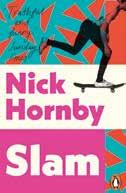
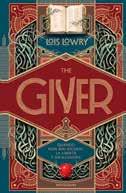
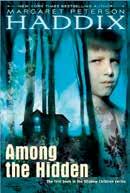
WRITING – PART 2 (A STORY)
2 2
3 3
4 4
5 5
H I felt different emotions while reading this book Speaker 1 1
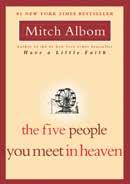
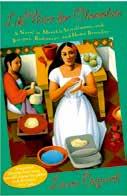
3 You have seen this announcement in a new English language magazine for schools.
STORIES WANTED
We are looking for stories for our new English language magazine for teenagers. Your story must begin with this sentence:
It was two o’clock in the morning and Tanya had missed the last bus home…
Your story must include:
• a telephone
• an old man
Write your answer in 140-90 words in an appropriate style.
Speaker
Speaker
Speaker
Speaker
Exam Skills FIRST 16 Exam Skills FIRST © Casa Editrice G. Principato
FUTURE CONTINUOUS
AFFIRMATIVE FORM
Subject + will (’ll) be + -ing form I’ll be working tomorrow at the beach so don’t ring me.
Will + subject + be + -ing form
Will you be having dinner at 7 o’clock. Can I come round?
• We use the future continuous to talk about actions which will be in progress at a particular time in the future.
Subject + will not (won’t) be + -ing form Sue won’t be playing tennis on Saturday afternoon.
Won’t + subject + be + -ing form “Ring me at 10 a.m.” “Won’t you be working at that time?”
Don’t disturb me tomorrow afternoon. I’ll be watching the tennis final on TV. They won’t be watching TV at 9 tonight so we can call round then. What will you be doing this time next week?
1 Complete the sentences using the correct form of the future continuous of the verbs in the box. live • stay • sleep • work out • fly • not feel • wait • use
1 _______________________________ (you) for me at the airport when my plane lands?
2 Don’t call me between 5 and 7 –I _______________________________ at the gym.
3 _______________________________ (you) in an Airbnb when you come to London?
4 In five years’ time do you think you (still) _______________________________ in Italy?
5 I _______________________________ (not) the car next week so you can use it if you like.
6 When you come home tonight after the party, don’t make a noise – your little brother _______________________________.
7 This time tomorrow my dad ____________________________ home from Paris.
8 She ____________________ her best for the match tomorrow – she’s just had a bad dose of the flu.
FUTURE PERFECT SIMPLE
Subject + will (’ll) have + past participle By the end of the week I’ll have finished watching The Crown.
Will + subject + have + past participle
Will George have learned to speak Russian by then end of the year?
Subject + will not (won’t) have + past participle She won’t have arrived at the airport yet.
Won’t + subject + have + past participle Won’t you have finished your exams by mid-July?
Grammar Zone 17 Grammar ZONE
NEGATIVE
FORM
INTERROGATIVE FORM INTERROGATIVE-NEGATIVE FORM
AFFIRMATIVE FORM NEGATIVE FORM
FORM INTERROGATIVE-NEGATIVE FORM
INTERROGATIVE
Step 2
© Casa Editrice G. Principato
• We use the future perfect simple to talk about actions which will be completed by a certain time in the future. It is often used with time expressions such as by then, by that time, by the end of the week/ month/year..., and with for and since to express the duration of states in the future.
By the end of the month the students will have read all the books. Call me at 8 – I will have finished by then.
2 Complete the sentences using the future perfect simple of the verb in brackets.
1 By the end of the month I __________________ (read) all the books on my summer reading list!
2 When they get engaged next week they ______________ (not / know) each other very long.
3 The tour of the Colosseum __________________ (start) by the time we get there if you don’t get a move on!
4 When he gets back from his round-the-world trip he __________________ (see) some of the most beautiful places in the world. Lucky him!
5 If we don’t play better in the second half this will be the fourth game in a row that we __________________ (lose) this season.
6 __________________ (Ben / manage) to download that new programme by the time we have to start doing that power point?
7 Mum __________________ (not / leave) the office yet. Ring her now!
8 If we carry on binge-watching like that we __________________ (finish) the series by the end of the week!
9 You __________________ (spend) all your money before the end of your holiday if you keep spending like that!
10 __________________ (you / move) into your new flat by the time you start your Masters Degree?
FUTURE PERFECT CONTINUOUS
Subject + will (’ll) have been + -ing form
Next month I’ll have been doing hip hop for eight years.
Will + subject + have been + -ing form
How long will you have been working there?
• We use the future perfect continuous to talk about actions which will continue until a point of time and will not be completed. It is also normally used with by or other time expressions.
Subject + will not (won’t) have been + -ing form
He won’t have been studying Arabic for long when he goes to Dubai to work.
Won’t + subject + have been + -ing form
“I’ll walk home this evening from the station.” “No, I’ll pick you up – you’ll be tired. Won’t you have been travelling all day?”
Missy will be tired – she’ll have been training for over three hours.
Next week we’ll have been looking for a new house for six months.
18 Grammar ZONE Grammar ZONE
AFFIRMATIVE FORM NEGATIVE FORM
INTERROGATIVE FORM INTERROGATIVE-NEGATIVE FORM
© Casa Editrice G. Principato
3 Complete the sentences using the correct form of the future perfect continuous of the verbs in the box.
wait • teach • not study • cook • cycle • work • drive • not go out
1 In January my mum __________________ Physics for twenty years.
2 Kate and Jim __________________ together for long when they move in together next month.
3 By the end of the week he __________________ for three months non-stop around Europe as part of his fitness challenge.
4 By the time we get to Bari this evening we __________________ for fourteen hours without stopping.
5 How long __________________ (she) on the book when it is eventually published?
6 “Mick’s just rung to say he’ll be here in half an hour.” “What? By the time he gets here, we __________________ for two hours!”
7 You __________________ for six hours by the time everybody arrives for dinner this evening. You’ll have cooked enough food to feed an army!
8 He __________________ Japanese very long when he goes to Tokyo on an internship.
READING AND USE OF ENGLISH – PART 4
4 Choose the correct answer.
1 _________ evidence of life on another planet by the end of the century?
a Will scientists be discovering
b Will scientists have been finding
c Will scientists have found
2 By the end of the summer Gwyn _________ enough money to buy a car.
a will be earned
b will have earned
c will have been earning
3 Next year I _________ English for ten years!
a will have been teaching
b will be teaching
c will have taught
4 Alex _________ hip hop for very long when he takes part in the regional championships. I hope he does ok!
a won’t have been doing
b won’t be doing
c won’t have done
5 For questions 1–5 complete the second sentence so that it has a similar meaning to the first sentence, using the word given. Do not change the word given. You must use between two and five words, including the word given.
1 There’s much more traffic in the city centre now than in the past. USE
There ______________________________________ so much traffic in the city centre.
2 Rob moved to London last August, nearly a year ago. BEEN
By the end of this month Rob ______________________________________ London for a year.
3 The teacher wasn’t there when I went to the staff room to talk to her. ALREADY
When I went to the staff room to talk to the teacher, she ________________________________.
4 Going on holiday alone was something I didn’t often do in the past. USE
I on holiday alone in the past.
5 Studying all afternoon isn’t hard for me. USED
I all afternoon.
Grammar ZONE 19
Step 2 © Casa Editrice G. Principato
All you need to know about HURLING
Hello there!
As I said in my first blog I’m a bit of a sports addict and I’m crazy about hurling. Never heard of it?


Well, it’s a uniquely1 Irish game and has (1) __________________ around for more than 800 years. It’s similar (2) __________________ hockey in that both games involve a stick and a ball – but that’s about all they have in common! I love it and play (3) __________________ weekends for my team, here in Limerick.
The stick is made (4) __________________ a single piece of wood and is curved with a flat2 end. The ball is about the size of a tennis ball and is leather-covered.
There are 15 players in each team and the object is to get the ball into the opponent’s goal. The goalpost is H-shaped with a net under the cross post. If the ball goes over the post a point is scored, if it goes under the post and into the net, three points are scored. We can strike the ball in the air as (5) __________________ as on the ground. When it’s on the ground it cannot be handled but it can be lifted from the ground using the stick.
(6) __________________ caught in the hand, a player can run with the ball for no (7) __________________ than three paces3, but is allowed to balance it on the blade4 of the stick while running.
Hurling is really popular over here in Ireland and attracts huge crowds – with over 70,000 people attending the All Ireland Championship Final in Dublin each September! More than a lot of football matches!
Check it (8) __________________ on Youtube!! https://www.youtube.com/watch?v=kPHcM1ZYiOY
See you!
Conor
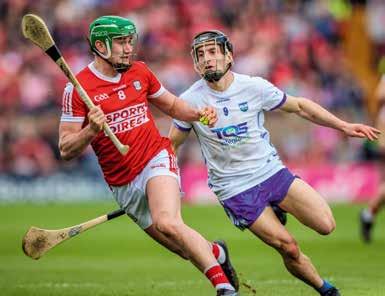
READING AND USE OF ENGLISH – PART 2 (OPEN CLOZE)
1 For questions 1–8, think of a word which best fits each gap.
1 uniquely_esclusivo
2 flat_piatto
3 paces_passi
4 blade_lama
3 STEP 20 BLOG
BLOG
© Casa Editrice G. Principato
MY FAVOURITE SPORT Collocations
1 Write the activities in the correct column.
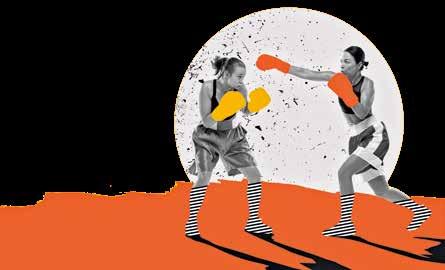

2 Which sports can you do…
1 …on a field or pitch or ground?
2 …on a slope?
3 …in a gym?
4 …on a court?
5 …on a rink?
6 …in a stadium?
7 …in a swimming pool?
8 …on a track?
9 …in the sea?

Wordbank 21 Wordbank
rugby judo hockey windsurfing football baseball skating aerobics climbing pilates tennis cycling karate swimming skiing athletics sailing waterpolo ballet horse-riding badminton basketball gymnastics kick boxing
Step 3 DO GO PLAY © Casa Editrice G. Principato
Phrasal verbs
3 Choose the correct phrasal verb.
1 He started running in the evenings to __________ a few pounds. a work off b burn out c burn away
2 I put ice on my ankle so that it wouldn’t __________. a blow up b swell up c go up
3 I __________ in the mornings before going to school – it gives me more energy to face the day. a work up b work out c work down
4 The national athletics championships __________ Manchester last weekend. a took part of b took place in c took part in
5 I decided to __________ yoga because it relaxes me. a take up b take on c take away
6 You will hurt yourself if you don’t __________ before the game. a warm down b warm in c warm up
4 5 Complete the sentences with the words in the box. Then listen and check. defeat • draw • captain • referee • tournament • coach • athlete • professional • amateur • spectators
1 After she won the ____________________ championship she turned professional.
2 A ____________________ must know all the rules of the game.
3 The match ended in a humiliating ____________________.
4 ____________________ were not allowed into football stadiums during the pandemic.
5 They appointed him ____________________ of the national team.
6 Usain Bolt was a great ____________________.
7 Her ____________________ encouraged her throughout the race to keep on running.
8 The game ended in a ____________________ – 1-1.
9 His victory in the ____________________ earned him $50,000.
10 He became a ____________________ footballer at just 16 years of age.

22 Wordbank Wordbank
© Casa Editrice G. Principato
READING AND USE OF ENGLISH – PART 7 (MULTIPLE CHOICE)
1 You are going to read a magazine article about four young people who do unusual sports. For questions 1–8 choose from the sections A–D. The sections may be chosen more than once.

Brad Da Silva
I’ve always been into mountain biking which is already considered pretty dangerous and exhilarating, but not enough for me! I find that two wheels is not extreme enough, so instead I have opted to ride a unicycle down mountains and rough terrains. Most people struggle to ride a unicycle, as it requires extreme balance, so the idea of traversing a mountain side on one seems a step too far, and it is a particularly difficult sport to get to grips with. It is, of course, hugely impressive, and although you may not reach the same speeds as mountain biking it takes a lot of guts, determination and skill to conquer a mountain on just one wheel.
B Ahmed Badawi
Have you ever imagined what it would be like to soar through the sky? I found out when I did wingsuit flying – this extreme sport is a combination of diving and hang gliding donning a wingsuit, so you look very much like a flying squirrel. The suit adds a large amount of surface area to the body, so that when you jump from a high altitude and spread your arms and legs you get an increase in lift which allows you to fly. To land you need a parachute – a bit like sky diving. It’s rather pricey though – a wingsuit set me back over a thousand dollars which is a bit more than I expected. And last but not least, it’s not a safe sport – almost half wingsuit pilots have experienced serious injury or narrowly missed death.
Which person…
C Zoey Beda
What’s Limbo skating? Well, it involves using roller skates to limbo under a bar just inches off of the ground. It’s incredible to watch people limbo under a bar just a few inches off the ground, but to do it on skates is even more impressive as we have to spread our legs apart. I started doing limbo on my seventh birthday party. I’d never skated before but I took to it like a fish takes to water! I never knew I was so flexible either as I had never done gymnastics before. At first I wore a pair of cheap Barbie skates and I’ve been at the rink every Saturday since. I can now limbo backwards too – it’s great fun!
D Viv Mason



There are few experiences which would be as extreme as walking on the wings of a plane midflight, and this has developed into a popular extreme activity. I did it a few years ago – I was strapped to the top wing of a vintage biplane where I was then swept through the skies at speeds of up to 135 mph. I must admit I was a bit nervous at first but I soon felt the adrenaline pumping!
The pilot performed a range of acrobatic manoeuvres too. Contrary to what many people think, it is not a particularly dangerous extreme sport as you are strapped to the plane, but you can be sure that it is the ultimate thrill ride and you’ll have your heart in your mouth throughout.
1 …spent more than they intended to on the equipment?
2 …felt a bit worried at first?
3 …wanted to do something more dangerous than they usually did?
4 …started the sport with cheap equipment?
5 …has to wear unusual clothing to do this sport?
6 …says that you need to maintain the body in a state of equilibrium?
7 …considers the sport less dangerous than it seems?
8 …believes you need to be particularly supple to do this sport?
Exam Skills FIRST 23 Exam Skills FIRST
Step 3 © Casa Editrice G. Principato
WRITING PART 1 – (AN ESSAY)
2 You must answer this question. Write your answer in 140–190 words in an appropriate style. In your English class you have been talking about sport. Now your English teacher has asked you to write an essay for homework. Write your essay using all the notes and giving reasons for your point of view.
TIPS
Remember to:
• talk about pros and cons/advantages and disadvantages;
• give your opinion, if you agree or disagree;
• express your opinion.

Which are better, team sports or individual sports?
Notes
Write about:
– friendship
collaboration
(your own idea)

3 The following phrases can be useful when writing an essay. Decide whether they are used at the beginning (B), in the middle (M) or at the end (E) of an essay.
1 Whereas
2 On the other hand,
3 In contrast,
4 For that reason,
5 My first reaction to this question is
6 As for
7 While
8 In conclusion, I would say that
9 Therefore,
10 To conclude, I would say that 11 However,
12 I will close by saying that
–
–___________________________
24 Exam Skills FIRST © Casa Editrice G. Principato
Exam Skills FIRST
MODAL VERBS
OBLIGATION AND ADVICE
• Should and ought to + base form are modal verbs very similar in meaning. They are used: – to talk about obligation and duty
You should/ought to help your parents.
You shouldn’t/oughtn’t to eat too much junk food. – to give and ask for advice
You should/ought to read Animal Farm by Orwell. Do you think I should/ought to apologise?
1 Choose the correct answer.
1 The bus leaves in 10 minutes. I _____ get a move on or I’ll be late!
a should b ought to c had better
2 Alex _____ carry so much cash when he’s travelling abroad.
a ought to b had better not c shouldn’t
3 The plumber is supposed to be coming this morning so I _____ go out.
a oughtn’t to b should c had better not
4 Chloe _____ train a bit harder if she wants to get into the first team.
a had better b ought c oughtn’t to
5 This app for learning English is really useful! You _____ download it!
a had better b should c had better not
6 We _____ invite Kelly to the barbecue. She’ll be really upset if we don’t.
a ought to b had better c shouldn’t
2 Complete the sentences with the verb in brackets and the correct form of should.
1 I ____________________ (lift) those weights. I’ve hurt my back.
2 Margaret was really upset you didn’t go to the party. You ____________________ (apologise).
• Should have and ought to have + past participle are used to say that someone did the wrong thing in the past.
Tom is really tired. He shouldn’t have gone to bed so late last night. (but he went to bed late) The game was awesome. You ought to have come with me. (but you did not come)
• Had better + base form is a modal verb which refers to the present and future. It is used to express a strong recommendation in a particular situation which implies a problem or a danger. You’d better hurry up or you’ll miss your flight.
3 You really ____________________ (buy) a new car. You won’t have anything left in the bank.
4 He ____________________ (jump) off the wall. He fell and broke his leg.
5 You ____________________ (take) the train if you want to get there quickly. It takes ages on the bus!!
6 My bike is broken. Maybe I ____________________ (ride) it down the stairs.
7 I ____________________ (answer back) in class. My parents won’t let me go out now.
8 Oh dear, you look awful. You ____________________ (go) and have a lie-down!
3 Complete the sentences with the missing word(s).
1 I suppose I’d better make a move, ____________________?
2 Your brother ____________________ to ride his scooter so fast – if he’s not careful he’ll have an accident.
3 Let’s go out for an aperitif, shall we? I ____________________, I’ve got loads of things to do.
4 You’ve got an English test tomorrow. ____________________ (you) start studying?
5 If you pull a muscle you ____________________ rest.
6 You ____________________ lent her your tablet. I told you she wouldn’t give it back to you!
Grammar Zone 25 Grammar ZONE
Step 3
© Casa Editrice G. Principato
DEDUCTION: CERTAINTY AND POSSIBILITY
For present and future deductions we use:
• must + base form to say that we are sure about something
The living-room light is on. She must be at home.
• may (not), might (not) and could + base form to say that we are not sure about something
Veronica isn’t at home yet. She may/might still be at school.
We may not/might not come to the beach tomorrow if the weather’s bad.
“Where are the children?” “They could be in the garden.”
• can’t + base form to say that something is impossible
“Is that Rob?” “It can’t be him – he left for England yesterday.”
• must and can’t + be + -ing form to say that we are sure about events in progress
I can’t hear the children – they must be sleeping. Alice has bought two tickets for the concert, so she can’t be going on her own.
4 Choose the correct answer.
1 Cindy has only just had dinner. She can’t / must / might be hungry already!
2 “Matt is really good at physics.” “You can’t / must / may be joking! He only got 4 in the last test!”
3 “Where’s the dog?” “He can’t / might / must be digging a hole in the garden, go and have a look.”
4 Lucy can’t / mustn’t / mightn’t have graduated yet – she’s only 20!
5 “Whose are these sunglasses?” “They can’t / must / could be my brother’s. I think he was looking for them.”
6 You mightn’t / mustn’t / can’t have to take those documents but I think you should.
7 “Anna said she’d meet me outside the café at 10 o’clock but she wasn’t there.” “Did you look inside? She might / can’t / mustn’t have been waiting inside.”
8 Dave and Kate are always eating out! They may / can’t / could be short of money!
9 I definitely gave you my credit card this morning. You must / can’t / might have it somewhere.
• may/might be + -ing form to express present or future possibility
Don’t ring him now – he may/might be having dinner.
For past deductions we use:
• must have + past participle
Jan fell asleep in the restaurant... She must have been really tired!
• may (not) have and might (not) have + past participle
“Ted is late!” “He may have/might have had to work late in the office.”
• can’t have and couldn’t have + past participle
Ann can’t have seen Chris yesterday. She’s in Brazil. It couldn’t have happened to a nicer person.
• must and can’t + have been + -ing form I heard noises coming from her room. She must have been working out.
You can’t have been listening – if you had, you would have understood.
• may (not) and might (not) + have been + -ing form
She might have been lying. It was difficult to tell.
10 It wasn’t that difficult to understand! You can’t / mustn’t / might have been paying attention.
5 Complete each sentence with the verbs from the box in the correct form. make • watch • sleep • win • follow • eat
1 “Where’s Nicole?” “I don’t know, she might ______________________ television.”
2 I wish I’d bought a lottery ticket. I might ______________________ a million euros.
3 “I wonder why Serena didn’t answer the phone this morning at 6 o’clock?” “She might ______________________!”
4 There’s flour all over the place. The children must ______________________ biscuits.
5 That dog has been walking behind me for the last 20 minutes. It must __________________ me.
6 Oh dear, I don’t feel too good. Maybe I shouldn’t ______________________ three pizzas.
26 Grammar ZONE
Grammar ZONE
© Casa Editrice G. Principato
NECESSITY AND LACK OF NECESSITY
• We use need to + base form to express a necessity.
I need to get a new printer.
• Needn’t and don’t need to + base form are very similar in meaning and are used to say that it is not necessary to do something.
I needn’t/don’t need to finish these exercises till next week.
You needn’t/don’t need to come until 15.00.
6 Complete the sentence using the correct form of need to or needn’t/don’t need to and a verb from the box.
iron • buy • wear • do • pay • renew • go • bring
1 (we) ___________________ our season ticket?
2 Iris can’t read the board from the back of the class. I think she ___________________ glasses.
3 You ___________________ the washing up. I’ll do it in a minute.
4 I ___________________ to the bank. My dad said he’d lend me the money.
5 I’m going to give Harry one of my squash rackets so he ___________________ a new one.
6 (we) ___________________ in advance?
7 What I love about this shirt is that I ___________________ it!
8 Tell Mo that he ___________________ anything to the party. There will be loads to eat and drink.
7 Complete the sentences using needn’t have or didn’t need to and the verb in brackets.
1 Fortunately, we ___________________ (buy) anything for dinner. My daughter had already made lasagne!
2 Jim ___________________ (take) the bus to school when he was little – his mum used to give him a lift.
• We use needn’t have + past participle and didn’t need to + base form to express lack of necessity in the past, but with two different meanings.
It was free to get into the museum so we needn’t have taken any money with us. (there was no need, but we took some money all the same) It was free to get into the museum so we didn’t need to take any money with us. (there was no need so we didn’t take any money)
3 I ___________________ (wait) for Ann. She was already there when I arrived!
4 There was plenty of petrol in the tank – we ___________________ (buy) any.
5 I ___________________ (worry) so much. The First exam wasn’t as difficult as I expected.
6 I ___________________ (work) last night. I finished everything in the afternoon.
7 We didn’t know that the theatre was only a 5-minute walk from the station so we ___________________ (take) a taxi. What a waste of money!
8 I ___________________ (call) the plumber out. Fortunately, I managed to fix the shower myself.
9 They ___________________ (rush) – they arrived far too early.
10 The theatre was always half full so they ___________________ (book) seats in advance.
11 You ___________________ (stay) at the party if you weren’t enjoying yourself. Why didn’t you go home?
12 You ___________________ (buy) anything really! That was so kind of you.
Grammar ZONE 27
Step 3 © Casa Editrice G. Principato
B2 FIRST
CAMBRIDGE ENGLISH: B2 FIRST
PAPER CONTENT PURPOSE
Reading and Use of English (1 hour 15 minutes)
Writing (1 hour 20 minutes)
Listening (about 40 minutes)
Speaking (14 minutes per pair of candidates)
7 parts / 52 questions
2 parts
4 parts / 30 questions
4 parts
PAPER 1 Reading and Use of English
Part 1 (Multiple-choice cloze)
Shows you can deal confidently with different types of text, such as fiction, newspapers and magazines. Tests your use of English with tasks that show how well you can control your grammar and vocabulary.
Requires you to be able to produce two different pieces of writing, such as letters, reports, reviews and essays.
Requires you to be able to follow and understand a range of spoken materials, such as news programmes, presentations and everyday conversations.
Tests your ability to communicate effectively in face to face situations. You will take the Speaking test with one or two other candidates.
A text with some multiple-choice questions. Each question has four options (A, B, C or D) – you have to decide which is the correct answer.
Part 2 (Open cloze) A text in which there are some gaps, each of which represents one missing word. You have to think of the correct word for each gap.
Part 3 (Word formation) A text containing eight gaps. Each gap represents a word. At the end of the line is a ‘prompt’ word which you have to change in some way to complete the sentence correctly.
Part 4 (Key word transformation)
Each question consists of a sentence followed by a ‘key’ word and a second sentence with a gap in the middle. You have to use this key word to complete the second sentence so that it has a similar meaning to the first sentence.
Part 5 (Multiple choice) A text with some multiple-choice questions.
Part 6 (Gapped text) A single page of text with some numbered gaps which represent missing sentences.
Part 7 (Multiple matching) A series of statements followed by a text divided into sections or several short texts.
PAPER 2 Writing
Part 1 (Compulsory question) You’re given an essay title and two ideas clearly linked to the title. The title will be a subject of general interest – you won’t need any specialised knowledge.
Part 2 (Situationally based writing task) You write a text from a choice of text types – article, email/letter, report or review.
PAPER 3 Listening
Part 1 (Multiple choice) Eight short extracts from monologues or conversations between interacting speakers.
Part 2 (Sentence completion) A monologue (which may be introduced by a presenter) lasting approximately 3 minutes.
Part 3 (Multiple matching) A series of five themed monologues of approximately 30 seconds each.
Part 4 (Multiple choice) A conversation between two or more speakers of approximately 3–4 minutes.
PAPER 4 Speaking
Part 1 (Interview) Conversation with the examiner, you may have to give information about your interests, studies, career, etc.
Part 2 (Long turn) Two candidates. The examiner gives you two different sets of photographs and asks you to talk about them.
Part 3 (Collaborative task) The examiner gives you some material and a task to do. You have to talk with the other candidate and make a decision.
Part 4 (Discussion) Further discussion with the other candidate about the topics or issues raised in the task in Part 3.
B2 FIRST 59
© Casa Editrice G. Principato
1 PAPER
READING AND
USE
OF ENGLISH PART 1
• For questions 1–8, read the text below and decide which answer (A, B, C or D) best fits each gap.
THE IMMORTAL JELLYFISH
Turritopsis dohrnii is a jellyfish (1) _________ can live forever. The secret to (2) _________ life is not just living a really long time – it’s all about maturity or rather, (3) _________ of it. These tiny immortal jellyfish propagate and then, instead of dying, they opt to revert to a sexually immature stage. They simply (4) _________ themselves back into their juvenile polyp state. Their tentacles retract, their bodies shrink and they sink into the ocean (5) _________ and start the cycle all over again. All adult Turritopsis (6) _________ this change and they can do it over and over again.
The only way that they can die is if they are consumed by another fish or if a disease (7) _________ the jelly. So, the good news is that you can be immortal. The bad news is that you (8) _________ to become a floating blob of jelly to do so.
1 A which B who C what D whose
2 A always B constant C eternal D timeless
3 A necessity B decrease C miss D lack
4 A transform B translate C renew D transfer
5 A ground B floor C soil D earth
6 A receive B undergo C keep D submit
7 A strikes B crashes C hits D touches
8 A should B must C ought D have
READING AND USE OF ENGLISH PART 2
• For questions 9–16, read the text below and think of the word which best fits each gap. Use only one word in each gap.
THE ORIGINS OF NETFLIX
Netflix started in 1997 when two friends, Reed Hastings and Marc Randolph, got frustrated with late fees for movie rentals. They came up (9) the idea of a DVD rental-by-mail service, where people could order DVDs online and (10) them sent to their homes. To make it (11) better, they introduced a subscription model so (12) customers could keep the DVDs without worrying (13) late fees. In 2007, Netflix made a big change. They began streaming movies and TV shows online, (14) meant people could watch instantly (15) waiting for DVDs. This move transformed Netflix (16) a global giant in streaming entertainment, offering a wide range of shows and movies that you can watch anytime, anywhere.
60 B2 FIRST
© Casa Editrice G. Principato
READING AND USE OF ENGLISH PART 3
• For questions 17–24, read the text below. Use the word given in capitals at the end of some of the lines to form a word that fits in the gap in the same line.
HIGH DIVING
High diving is an exhilarating aquatic sport where athletes gracefully plunge from significant (17) __________________ into a deep pool of water. Typically performed from platforms situated at varying elevations, including 27 meters (89 feet) in outdoor (18) __________________ and 20 meters (65 feet) in the Olympic Games, high diving demands skill, courage, and precise technique. Athletes execute a series of acrobatic (19) __________________ during their descent, incorporating somersaults, twists, and formations that showcase their agility and creativity. High diving gained (20) __________________ as a competitive sport, with events like the Red Bull Cliff Diving World Series attracting top divers from around the world. (21) __________________ is paramount, and divers undergo rigorous training to perfect their routines and (22) __________________ a safe entry into the water. The sport combines elements of artistry and (23) __________________ offering spectators a (24) __________________ spectacle as athletes defy gravity with breathtaking dives from towering heights.
READING AND USE OF ENGLISH PART 4
• For questions 25–30 complete the second sentence so that it has a similar meaning to the first sentence, using the word given. Do not change the word given. You must use between two and five words, including the word given.
25 There were so many people at the gym at lunchtime that we decided to go in the evening. SUCH
There were __________________________________________ people at the gym at lunchtime that we decided to go in the evening.
26 Just think, you’re starting your new job in Dublin next week. WORKING
Just think, next week you __________________________________________ in Dublin.
27 The film was already showing when we arrived. STARTED
The film we arrived.
28 Venice is the most beautiful city I’ve ever visited. NEVER
I __________________________________________ beautiful city as Venice.
29 We finally succeeded in finding a hotel within walking distance of the beach. MANAGED
We finally __________________________________________ a hotel within walking distance of the beach.
30 It’s possible that you left your schoolbag in the changing rooms. MAY
You __________________________________________ your schoolbag in the changing rooms.
PAPER 1 61
HIGH COMPETE MOVE POPULAR SAFE SURE
THRILL
ATHLETE
© Casa Editrice G. Principato
1 PAPER
READING AND USE OF ENGLISH
PART 5
• You are going to read an extract from a book about a teenage boy. For questions 31–36, choose the answer (A, B, C or D) which you think fits best according to the text.
t was just another normal day, much like any other. Liam Connor didn’t know it would be the last normal day of his life. Liam was fifteen. He was a bright boy, never top in his class at anything, but always up there. He fitted in. He had lots of friends. He had parents he admired, and he split his time between boarding school and living with his mother and father in the outskirts of Norwich. His life could hardly have been more settled. Liam Connor had been living a lie. Only... it turned out that it was a lie no-one had thought to let him in on. Liam Connor was about to find this out.
Liam jumped out of the train as soon as the door would open. It was a Friday evening in the middle of May and normally he would be at school over the weekend. Today, though, they’d granted him an exeat, special permission to leave early and head for home. His father was back from his travels, and Liam and his parents were going to spend the weekend together.
Liam left the station with his bag over his shoulder and crossed onto Riverside Road. A few minutes later he was on New Chapel Road, which cut across one corner of the Heath. Almost home.
He was hot from the walk, and from carrying his weekend bag in the May sunshine. It was only a couple of weeks since he’d last been home, but then it had just been him and Mum. His father worked for the Government and travelled a lot. Ministry of Defence, Liam thought, although he wasn’t sure. One time when he’d asked, his dad had just given one of his winning smiles and shaken his head. “Sorry, Liam. I can’t tell you what I do. Top secret. If I told you I’d have to kill you...”
Liam liked to think that was true, but he suspected his father did something altogether un-glamorous: more carpet fitter or catering consultant than 007. Liam paused, and let his bag slide from his shoulder, catching the strap in one hand as it slithered down his arm. He rolled his shoulders, wondering why he’d packed so much just for a weekend.
The house looked just the same as it always did. Detached, set back from the road, slightly shielded from view by three silvery eucalyptus trees. There was no sign of anybody at home, no car in the drive. It was probably in the garage, he thought, although Mum
hardly ever bothered to park it in there. He crunched a diagonal route across the drive, then crossed the small patch of front lawn.
The front door was open a short way, as if it had been left for him, or as if someone had casually forgotten to close it upon leaving. He pushed on it gently and it was at that moment that he started to understand that something was very seriously wrong.
He paused on the doorstep. A blackbird clacked angrily from the fence. A car went slowly past, classical music playing softly on the stereo.
Somewhere, he heard the whine of a distant lawnmower. He didn’t know what it was, but he knew that something was wrong. Despite all the normal sounds and smells, despite the fact that nothing was obviously amiss, his heart raced and sweat broke out across his brow.
He dropped his bag and went inside. The hall was no different to usual. Polished floorboards, dark wood panelling covering the lower half of the walls, stairs off to the left turning at right-angles after five steps. A tall mirror was on the wall in front of him. His short blond hair stood in haphazard tufts and spikes and automatically he reached up to smooth it. He could see the apprehension in his own eyes.
“Hello?” His voice sounded strong. It didn’t betray the tension he felt. They taught you to project your voice at school. He turned to the right and pushed at the living room door.
Inside, it was as if a whirlwind had struck.
The sofa had been tipped over onto its back, and Liam could see that the fabric panel stretched across its base frame had been slashed, as if someone had been searching for something. The armchair was on its side, slit open, too. The antique, glass-panelled bookcase had been tipped forward and broken glass was scattered over the floor around it. The Lucien Freud print of a greyhound had been ripped out and its frame smashed. Family photographs and books had snowstormed across the floor. A wooden-backed chair that had once stood against the wall by the bay window had been smashed into the widescreen TV, and now stuck out into the room like some weird kind of sculpture.
62 B2 FIRST
© Casa Editrice G. Principato
31 What do we learn about Liam in the first paragraph?
A He is not academically gifted
B He is dissatisfied with his life at boarding school
C He suffers as a consequence of his parents’ break up
D He leads a happy, normal life
32 What do we learn about Liam’s father’s job?
A That he works for the Ministry of Defence as a spy
B That he is a tradesman
C That he frequently travels abroad
D That he works in the catering industry
33 What impression do we have of Liam’s parents’ house?
A It is a large, comfortable house in a quiet neighbourhood
B It is a high-rise apartment block
C It is a small semi-detached house in a residential area
D It is in a busy, congested street
34 When Liam arrived home what made him suspect something was wrong?
A There was a strange sound coming from inside the house
B Everything was unusually quiet
C Liam’s mother’s car was not parked where it usually was
D The front door was ajar
35 What is meant by “his short blond hair stood in haphazard tufts and spikes”?
A It was unruly and dirty
B It was windswept
C It was standing up on end in a disorderly way
D It was long and needed cutting
36 What does the writer mean by “It was as if a whirlwind had struck”?
A There had been a hurricane
B Somebody had entered the house and turned everything upside down
C A snowstorm had destroyed the house
D Liam was in a state of shock
PAPER 1 63
© Casa Editrice G. Principato
1 PAPER
READING AND USE OF ENGLISH PART 6
• You are going to read an article about a luxury property development in London. Six sentences have been removed from the article. Choose from the sentences A-G the one which fits each gap (37–42). There is one extra sentence which you do not need to use.
Every morning, when Nadeem Iqbal wakes up and walks into his living room, he has an amazing view. A crisp oblong of crystal clear water now hangs in the air between two apartment buildings opposite his balcony, a liquid blue block suspended against the sky. 37 It is one absurdist step beyond the private cinema, indoor pool, gym and rooftop lounge bar. When the plan was unveiled by Irish developer Ballymore in 2015, it was dismissed as “crackers”. 38 But last week the scaffolding was taken down to reveal a bright blue rectangle hovering against the leaden January skies, 10 storeys up in the air.
39 It is a dazzling feat of engineering spanning the 14-metre gap between the two buildings and give residents the feeling of “floating through the air in central London”. But, although he lives in Embassy Gardens, Iqbal and his neighbours will never enjoy the thrill of going for an aerial dip. “We have a front-row seat of the Sky Pool. 40 We can only look at it, just like the nice lobby, and all of the other facilities for the residents of the private blocks. Nobody expects these amenities for free, but we’re not even given the choice to pay for them.”
For Iqbal to reach his two-bed flat – valued at £800,000, of which he owns a quarter and pays rent on the rest –he must walk past the grand, hotel-style main entrance to the complex, flanked by supercars with personalized number plates, to the back of the development. 41 “There’s a reason they’re called ‘poor doors’,” he said. “I grew up in South Africa, in a country that was racially segregated, but in London there is still really bad class segregation.” 42
A He then walks on past construction fences and piles of rubble, to a small door located between ventilation grilles and a bin store.
B Nobody believed it would ever materialise.
C He continued, “We have a mortgage and we pay our rent, but every day we are made to feel inferior, like the have-nots of Nine Elms.”
D This is the Sky Pool, the latest addition to the luxury residential enclave of Embassy Gardens in Nine Elms, south-west London
E Residents have reported a host of issues with the buildings’ construction quality.
F It has been billed as the world’s first swimming-pool bridge.
G But the sad thing for us, living in the shared-ownership building, is that we will never have access to it.
64 B2 FIRST
© Casa Editrice G. Principato
READING AND USE OF ENGLISH PART 7
• You are going to read reviews of restaurants written by four students. For questions 43–52, choose from the people A–D. The people may be chosen more than once.
Which person… enjoyed the home cooking
regrets having eaten so much
impressed by the staff
initially annoyed that the place was busy
hoped to spend less
was not impressed by the location
felt comfortable eating on their own
a lot despite not being happy with a part
A FREYA
Last summer we were on the coach on our way back home after a school trip to Berlin and we decided to stop off at a motorway café for lunch. I don’t really like the food in motorway cafés but I was starving... The café itself was clean enough but uninteresting and I was expecting the same of the food. Anyway, in my broken German I managed to order a stew – at first the waiter didn’t understand what I wanted and he gave me a bowl of soup. Anyway, I was pleasantly surprised – the meat was really tender and tasty and the vegetables were perfectly cooked. The only downside was the view – the car park...
B BEN
I’m not really keen on fast food but I was doing an internship in a city I didn’t know very well and I only had an hour for lunch so I decided to go to a burger bar just around the corner from the office where I was working. The place itself was spotless and the staff were smartly dressed, kind and helpful, which I wasn’t really expecting because they are really rushed off their feet. Anyway, I ordered my meal, paid for it and went to sit down. The food itself was nothing special – the cheeseburger was alright but the chips were a bit soggy. Then I had a couple of scoops of ice-cream which was pretty good. I quite enjoyed it – I felt quite at ease too since a lot of other people were eating alone, too.
C ALEX
While we were on a study holiday my friends and I decided to go and try out the food in a new Indian restaurant which a friend at university had recommended. It was the first time I’d tried Indian cuisine and definitely not my last. The restaurant itself was cosy and welcoming and both the chefs and the owners were Indian – everything was made according to traditional recipes. The food was wonderful – a bit hot and spicy but I loved it. I ate far too much and after the biryani, dosa, chicken tandoori and Daal Makhani. I really shouldn’t have eaten anything else but I was desperate to try gulab jamun, which are basically milk balls. Wonderful food and surprisingly, it wasn’t as expensive as I’d expected.
D LAURA
My boyfriend and I were staying in a small village in Cornwall and we thought we’d try out the food at the local pub. When we got there, the place was packed, which was a bit frustrating but we decided to wait thinking that the food must be good if there were so many people. After about 20 minutes we eventually got a table. And it was definitely worth the wait - the starters were excellent and we ordered the best food on the menu. We spent a lot more than we had intended to but it’s not every day we eat out. Unfortunately, the dessert was a bit of a letdown. It was apple crumble and custard and it was a bit undercooked. We should have sent it back but I didn’t want to kick up a fuss.
PAPER 1 65
43
44
45
46
47 had
48
49
50
the meal 51 wasn’t
to
so good 52
was
was
had
difficulty making themselves understood
paid
of
expecting the food
be
© Casa Editrice G. Principato
2 PAPER
WRITING
PART 1
• You must answer this question. Write your answer in 140–190 words in an appropriate style.
1 In your English class you have been talking about the importance of staying healthy. Now your English teacher has asked you to write an essay.
Write an essay using all the notes and an idea of your own:
To what extent has our health and fitness improved in recent years?
1 food
2 exercise
3 ______________________ (your own idea)
WRITING PART 2
• Write an answer to one of the questions (2–5) in this part. Write your answer in 140–190 words in an appropriate style.
2 You have seen this announcement in a new English language magazine for schools.
STORIES
WANTED
We are looking for stories for our new English language magazine for teenagers. Your story must begin with this sentence:
When Ella opened the door she couldn’t believe her eyes!
Your story must include: – a book – a friend
Write your story.
3 You recently saw this advertisement in an English-language magazine for teenagers.
REVIEWS
WANTED
A great TV series!
Tell us about a great TV series you have seen. Describe the series and say what you like about it. Would you recommend it to people your age?
The best reviews will be published next month.
Write your review
© Casa Editrice G. Principato
66 B2 FIRST
4 You receive this email from your English friend, Thomas.
WRITING PART 2
My parents say I should help more around the house and they say I can’t go out with my friends or play on the PS unless I do some household chores every day! I don’t think it’s fair! What do you think?
Thomas
Write your email
5 You saw this advertisement on your school’s notice board.
THE PERFECT SCHOOL
What is the perfect school? Write an article about the teachers, the facilities and the subjects. The best articles will be published next month!
Write your article.
PAPER 2 67
© Casa Editrice G. Principato
3 PAPER
• 10 You will hear people talking in eight different situations. For questions 1–8, choose the best answer (A, B or C).
1 You hear a girl and a boy talking about an exam. How does she feel?
A Nervous.
B Angry.
C Confident.
2 You hear a famous musician talk about his life. Who inspired him to become a professional musician?
A Her aunt.
B Her mother.
C Another famous musician.
3 You hear a girl leaving a voice message on her friend’s phone. What does she want him to do?
A Take her to a party.
B To buy a present for someone.
C To put her up for the night.
4 You hear an extract from a radio programme. What is the caller’s question about?
A Losing weight.
B Alternative medicine.
C Stopping smoking.
5 You hear two people talking about a holiday. What went wrong?
A The plane was delayed.
B The hotel was not up to standard.
C Their suitcases got lost.
6 You hear two friends talking about a video game for the boy’s sister. What does the boy think?
A It isn’t appropriate for his sister’s age.
B The content won’t appeal to his sister.
C It’s more suited to boys.
7 You hear a teacher talking to his class. What does he want them to do this week?
A Find out something.
B Make cakes at school.
C Buy some old furniture.
8 You hear a girl talking to her friend about her new home. What does she think of it?
A It’s too far from school.
B It’s too big.
C It’s on a noisy street.
LISTENING PART 2
• 11 You will hear a young actress called Penny Cross talking about her life. For questions 9–18 complete the sentences with a word or short phrase.
9 Penny grew up in the ___________________________________.
10 Her ___________________________________ took her to an audition for the school play.
11 When Penny got on stage she felt ___________________________________.
12 The performance she’s most proud of is in the play “___________________________________”.
13 The play focuses on events which took place in the ___________________________________.
14 She prefers playing ___________________________________ characters.
15 Penny rehearses at the ___________________________________.
16 During a comedy a mistake taught Penny to be ___________________________________.
17 Penny thinks her best acting experience was in a ___________________________________.
18 Penny’s ambition is to be a ___________________________________.
68 B2 FIRST
1
LISTENING PART
© Casa Editrice G. Principato
LISTENING PART 3
• 12 You will hear five students talking about learning experiences. For questions 19–23 choose from the list A–H the opinion each speaker expresses. There are three extra letters which you do not need to use.
A This teacher helped me with another subject
B I was punished
C This teacher praised my work
D The experience was more enjoyable than I had expected
E I didn’t manage to do everything I wanted to do
F I felt ashamed
G I was over confident
H I managed to do something effortlessly
Speaker 1 19
Speaker 2 20
Speaker 3 21
Speaker 4 22
Speaker 5 23
LISTENING PART 4
• 13 You will hear a teenager talking about geocaching. For questions 24–30 choose the best answer (A, B or C)
24 What feature of the geocaching app does Harvey emphasize?
A It uses advanced mapping technology.
B It displays hidden caches using QR codes.
C It employs GPS and satellites to locate hidden treasures.
25 Where did Harvey find a cache that contained a logbook?
A In his backyard.
B In a tree in a local park.
C Near a busy street in the city.
26 How does Harvey describe the viewpoint he discovered during geocaching?
A It was a well-known tourist spot.
B It was very near where he lives.
C It offered a breathtaking view of the city.
27 What, according to Harvey, is one of the most captivating aspects of geocaching?
A Discovering new places
B The opportunity to meet and connect with new people.
C The possibility of finding valuable treasures.
28 What does Harvey say about leaving a trinket in a geocache?
A It’s a tradition he follows every time.
B It depends on the size of the cache.
C It’s discouraged by the geocaching community.
29 According to Harvey what role does technology play in geocaching?
A It detracts from the overall experience.
B It enhances the adventure by providing clues.
C It’s limited to using physical maps.
30 What does Harvey recommend to those who haven’t tried geocaching?
A They should start with a specific type of cache.
B They are likely to get bored quickly.
C They are missing out on a fantastic experience.
PAPER 3 69
© Casa Editrice G. Principato
SPEAKING PART 1
• Practise with a friend. Ask and answer the following questions.
– Where are you from?
– What do you like/dislike about your home town?
– Talk about a festival or celebration in your home town.
– Do you like your school? Why?/Why not?
– Do you enjoy watching television?
– What did you do on your last birthday?
– What was the last book you read?
– Do you like cooking?
– How will you spend your next school holiday?
– Do you like shopping?
– Talk about a good friend of yours.
SPEAKING PART 2
Examiner to candidate A
Compare and contrast the photographs below and say what the people are enjoying about their holiday.
• What are the people enjoying about their holiday?


Examiner to candidate B
• Which kind of holiday would you prefer?
© Casa Editrice G. Principato
70 B2 FIRST
4 PAPER
SPEAKING PART 2
Examiner to candidate B
Compare and contrast the photographs below and say why the people have decided to eat in these places.
• Why have they decided to eat in these places?


Examiner to candidate A
• Where would you prefer to eat?
PAPER 4 71
© Casa Editrice G. Principato
Examiner to candidates A and B
local economy effect on the environment learning about other cultures discover new places communication problems cost
Should people holiday in their own country instead of travelling abroad?
Now decide which is the most important reason for holidaying in your own country.
SPEAKING PART 4
• Work with a friend. Ask and answer the following questions.
1 Have you ever had a holiday abroad? If so, where?
2 Do you think it is important to speak the language of the country you are visiting?
3 Do you think it is better to have one more expensive holiday each year or several less expensive ones?
4 Some people like going on holiday to the same place every year? What do you think about this?
5 What are some popular holiday destinations in your country?
72 B2 FIRST 4 PAPER
SPEAKING PART 3
© Casa Editrice G. Principato


















































